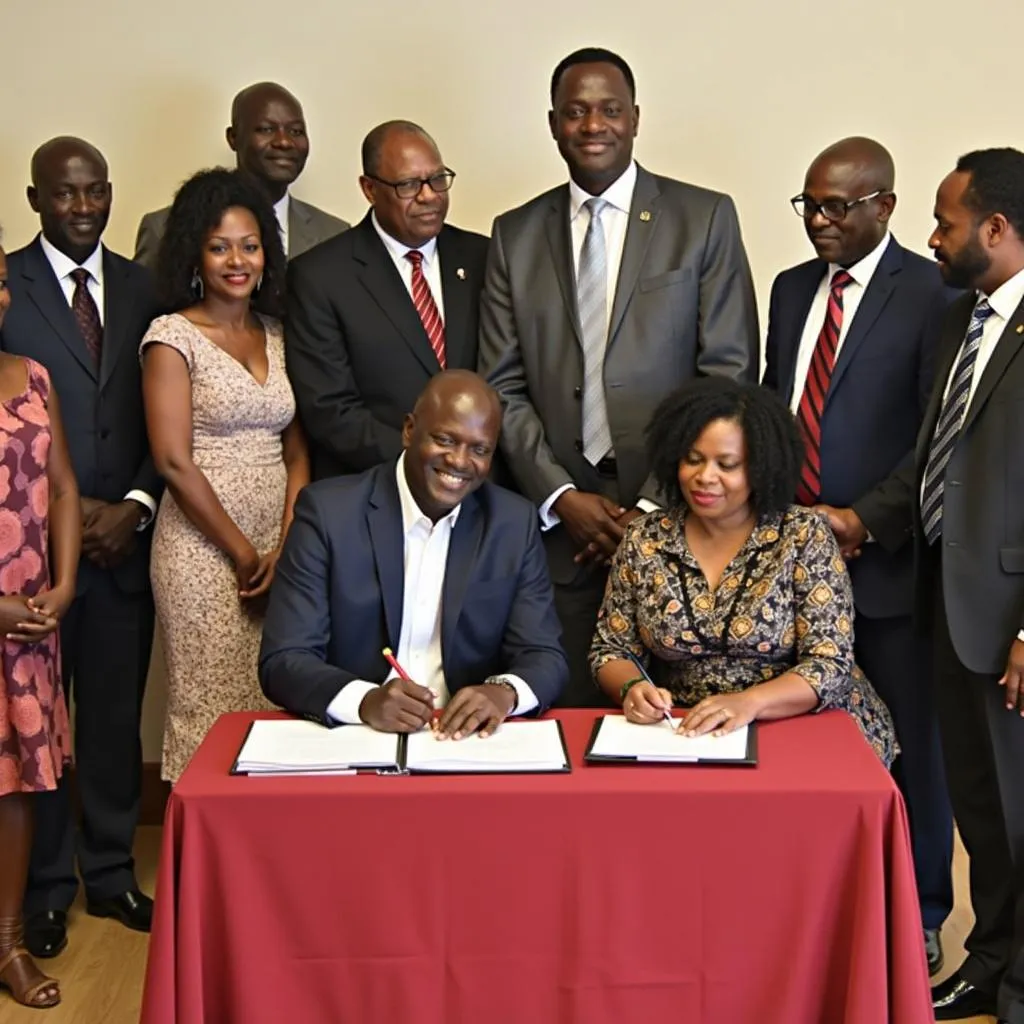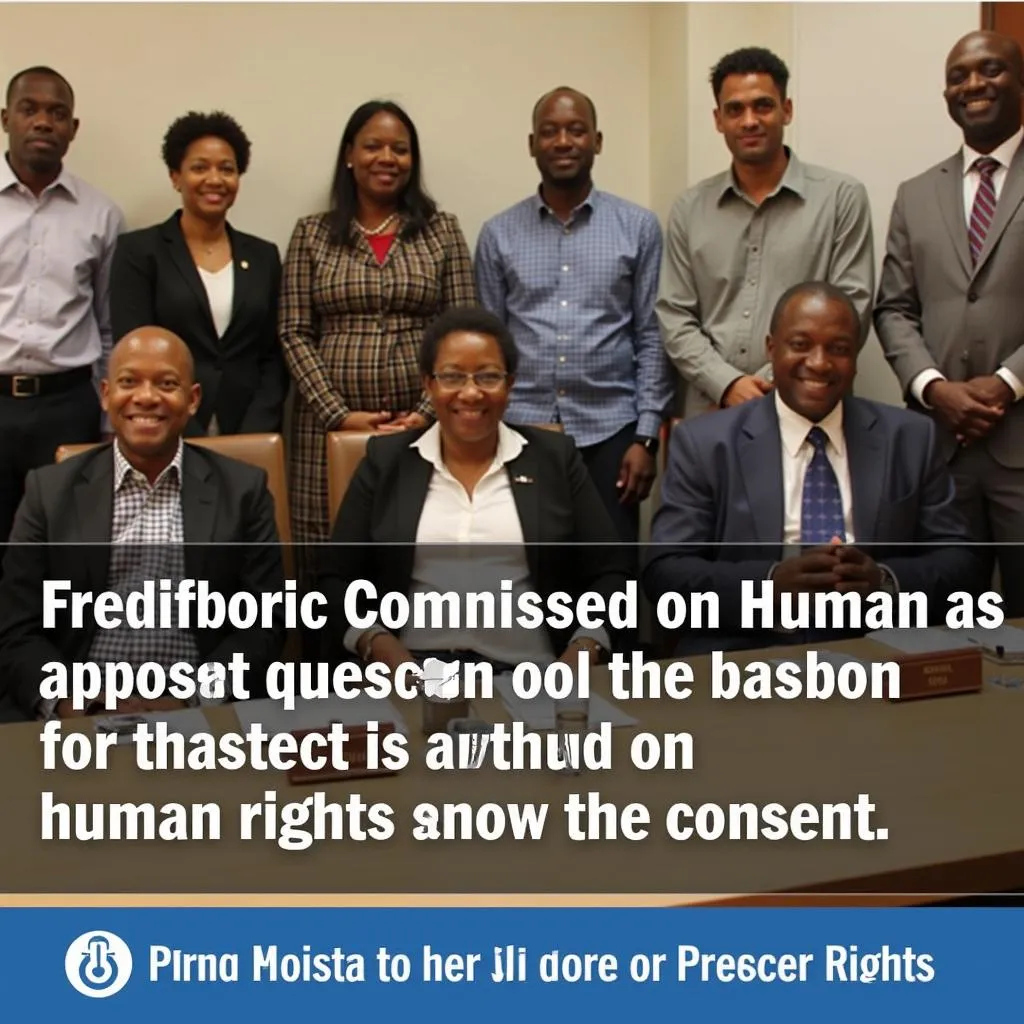The Banjul Charter: A Foundation for Human Rights in Africa
The Banjul Charter, formally known as the African Charter on Human and Peoples’ Rights, is a landmark document in the history of human rights in Africa. Adopted in 1981 in the Gambian capital of Banjul, the Charter lays out fundamental rights and freedoms for all Africans, establishing a framework for the promotion and protection of human rights across the continent. This article explores the significance of the Banjul Charter, its key provisions, and its impact on the human rights landscape in Africa.
A Pivotal Moment for Human Rights in Africa
The Banjul Charter represents a pivotal moment in the development of human rights in Africa. Prior to its adoption, many African countries were struggling to emerge from colonialism and faced a range of challenges, including political instability, economic underdevelopment, and social inequalities. The Charter was a powerful symbol of Africa’s commitment to building a future based on respect for human dignity and fundamental rights.
“The Banjul Charter was a beacon of hope for a continent yearning for a new era of peace, justice, and freedom,” says Professor Amara Konaté, a leading expert in African human rights law.
Key Provisions of the Banjul Charter
The Banjul Charter outlines a comprehensive set of human rights, covering both civil and political rights as well as economic, social, and cultural rights. Some of the key provisions include:
- Right to life, liberty, and security of person: This provision guarantees the protection of individuals from arbitrary arrest, detention, or execution.
- Right to equality before the law: This provision ensures that all individuals are treated equally under the law, regardless of race, sex, language, religion, or political affiliation.
- Right to freedom of expression: This provision protects the right to express one’s views freely and peacefully, including the right to criticize the government.
- Right to freedom of association: This provision guarantees the right to form associations, including political parties, trade unions, and non-governmental organizations.
- Right to freedom of movement: This provision protects the right to travel freely within and outside of one’s country.
- Right to work: This provision recognizes the right to work under just and favorable conditions, including fair wages and safe working environments.
- Right to education: This provision enshrines the right to education, including free and compulsory primary education for all children.
- Right to health: This provision recognizes the right to health care, including access to essential medical services.
The Impact of the Banjul Charter
The Banjul Charter has had a profound impact on human rights in Africa. It has served as a legal framework for numerous national human rights institutions and has been instrumental in the development of regional human rights mechanisms, such as the African Commission on Human and Peoples’ Rights. The Charter has also influenced national laws and policies in many African countries, leading to improvements in the protection of human rights.
However, the Charter’s implementation has faced significant challenges, including lack of political will, inadequate resources, and ongoing human rights violations in many African countries. Despite these challenges, the Banjul Charter remains a powerful tool for promoting and protecting human rights in Africa.
What are the implications of the Banjul Charter for the future of human rights in Africa?
The Banjul Charter is a living document that continues to evolve in response to changing social and political realities in Africa. While the Charter has faced challenges, it remains a vital foundation for human rights in the continent. The African Commission on Human and Peoples’ Rights continues to play an important role in monitoring the implementation of the Charter and providing a forum for the discussion of human rights issues.
“The Banjul Charter serves as a reminder that Africa is committed to human rights and that we must continue to work towards a future where all Africans enjoy their fundamental rights and freedoms,” says Professor Konaté.
 The Banjul Charter: A Symbol of Africa's Commitment to Human Rights
The Banjul Charter: A Symbol of Africa's Commitment to Human Rights
FAQs
Q: What is the purpose of the Banjul Charter?
A: The Banjul Charter aims to promote and protect human rights and fundamental freedoms for all Africans. It sets out a framework for the recognition, protection, and promotion of human rights across the continent.
Q: What are some of the key challenges to implementing the Banjul Charter?
A: Some of the key challenges include lack of political will, inadequate resources, and ongoing human rights violations in many African countries.
Q: What is the role of the African Commission on Human and Peoples’ Rights in implementing the Banjul Charter?
A: The African Commission plays a key role in monitoring the implementation of the Charter, receiving complaints of human rights violations, and making recommendations to states parties.
Q: What is the significance of the Banjul Charter for the future of human rights in Africa?
A: The Banjul Charter remains a crucial foundation for human rights in Africa, providing a legal framework for the protection and promotion of human rights. It continues to inspire and guide efforts to ensure that all Africans enjoy their fundamental rights and freedoms.
Q: What is the future of the Banjul Charter in the face of new challenges?
A: The Banjul Charter is a living document that continues to evolve in response to changing social and political realities. The African Commission will need to continue to work with governments, civil society organizations, and other stakeholders to ensure the Charter’s relevance and effectiveness in the years to come.
 The African Commission on Human and Peoples' Rights: Protecting Human Rights in Africa
The African Commission on Human and Peoples' Rights: Protecting Human Rights in Africa
In conclusion, the Banjul Charter is a testament to Africa’s commitment to building a future based on human dignity and respect for fundamental rights. It serves as a beacon of hope for a continent striving for peace, justice, and prosperity. As we look ahead, it is essential to continue to strengthen and support the implementation of the Banjul Charter, ensuring that it remains a powerful tool for safeguarding the human rights of all Africans.

